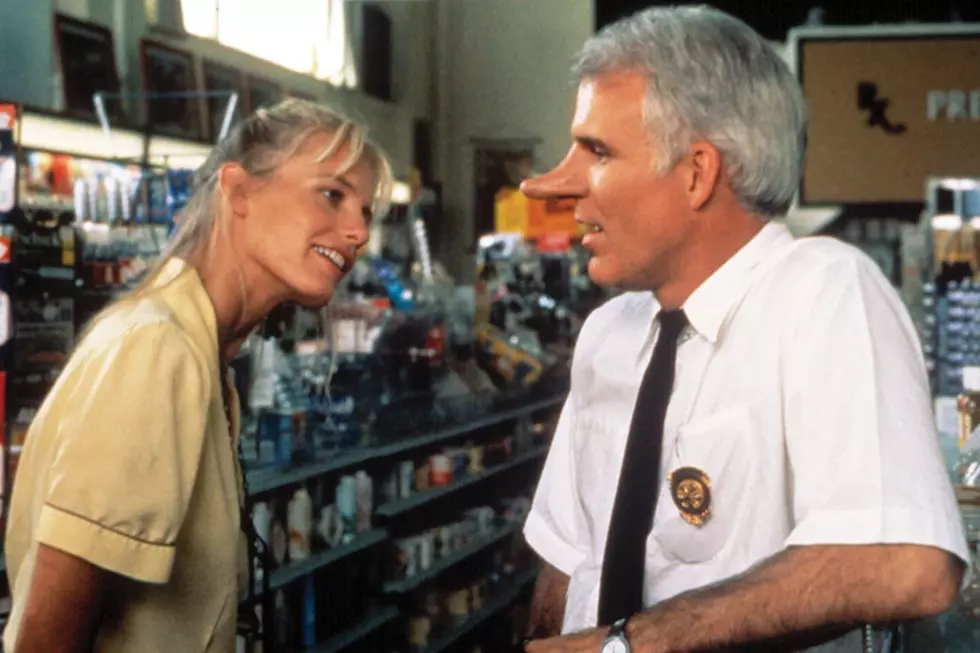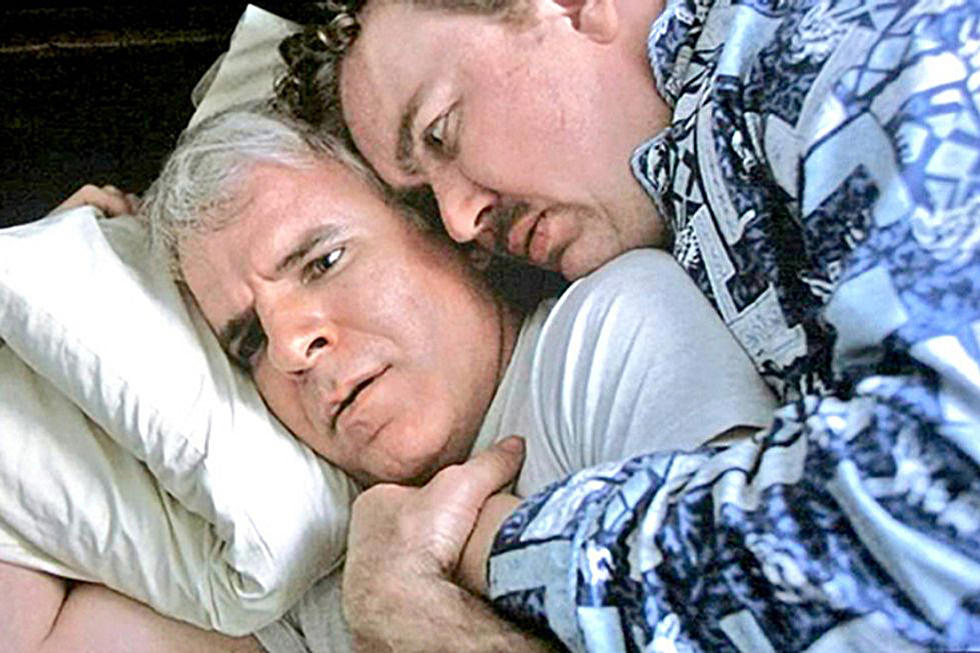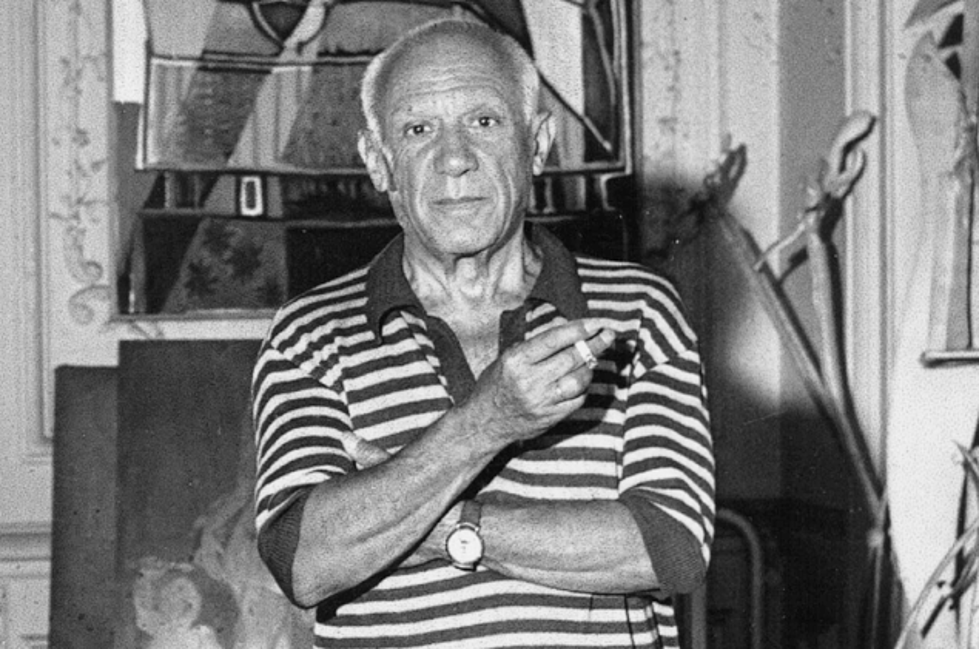
35 Years Ago: Steve Martin Plays Romantic Hero in ‘Roxanne’
Steve Martin’s early success sprang from inspired silliness.
For the erudite and inquisitive former philosophy student and magician, comedy was about subverting comic conventions while simultaneously performing them better than anybody else. His “Wild and Crazy Guy” stage persona was equal parts knowing mockery of stand-up schtick and exquisitely inventive physical comedy — and showbiz schtick. And it made him a superstar.
But the restless energy of Martin’s presence onstage and in films like 1979’s The Jerk (which Martin co-wrote) hinted at his ambition. He still made major splashes at the box office in similarly broad, bracingly silly vehicles like 1982’s ingenious Old Hollywood detective pastiche Dead Men Don’t Wear Plaid and 1983’s absurdist mad scientist romance The Man With Two Brains. But Martin increasingly stretched himself. Herbert Ross’ film of Dennis Potter’s musical-drama hybrid Pennies From Heaven puzzled longtime Martin fans with his daringly unlikable portrayal and divided critics who’d missed the deceptively layered nature of Martin’s comedy. And his team up with Lily Tomlin in 1984’s body-sharing comedy All of Me allowed the actor to show off his unparalleled physical comedy skills while acting as a test run for the romantic leading roles Martin was keen to tackle.
Roxanne - which was released on June 16, 1987 - was Martin’s big swing at the rom-com lead, and he made the most of it. The film was a hit, eventually grossing $40 million on a $12 million budget, but for Martin, Roxanne was a deeply personal triumph. Reaching back to Edmond Rostand’s Cyrano de Bergerac, screenwriter Steve Martin provided Steve Martin the movie star with a deft and irresistible showcase.
The film, helmed by Australian director Fred Schepisi, stars Martin as C.D. Bales (note the initials), the beleaguered but prankish fire chief of a second-rate skiing town in the Pacific Northwest. He’s also got a huge banana-sweep of a nose (courtesy of makeup artists Michael Westmore and Frank Griffin) that sees the otherwise absurdly assured Bales channeling all of his considerable talents into a light-footed daily routine of comic bits. First seen undertaking the mundane task of returning a tennis racket to best friend Dixie (a charmingly forthright Shelley Duvall), C.D. turns his on-foot jaunt into a series of self-amusing comical set pieces. (“Didn't slide!” C.D. sings to the tune of “I’m Walkin’” after one goof doesn’t work out, continuing happily, “What a tough break for me.”)
Confronted by a couple of “coked-up hopheads" (according to Bales’ improvised musical narration) who make the grave mistake of insulting the chief’s nose (“3-D! Comin’ at ya!” one would-be bully blurts), Bales turns the resulting fight scene into just another opportunity to demonstrate his many skills. Martin, sussing out that the original play’s swordplay wouldn’t exactly translate to the modern day, substitutes C.D.’s racket and the goons’ ski poles, C.D. effortlessly leaving them sprawling while keeping tennis score with every unerring thwack. Until that point, Schepisi’s camera keeps its distance, using medium shots and edits to obscure the running joke that would be C.D. Bales’ magnificent honker.
From there, Roxanne allows Martin to turn Rostand’s tale of derring-do and flashing swords into a gentler tale of a ridiculously accomplished charmer likewise stymied by his perceived single physical inadequacy as he pines for unattainable love. That’s Roxanne Kowalski, the willowy astrophysicist who’s rented one of Dixie’s many summer properties to pursue her discovery of a new comet. Played by Daryl Hannah, three years after making her big Splash splash, Roxanne quickly finds a kindred soul in C.D., even as her head is turned by the arrival of hunky but ludicrously inarticulate new fireman Chris (Rick Rossovich, a year removed from Top Gun’s Slider).
Roxanne suffers upon present-day viewing from some unfortunate '80s-filmmaking markers. The score is all swoony sax-jazz of the post-Tootsie variety, while Schepisi isn’t as graceful or effortless as the film’s protagonist when it comes to, for example, blending external scenes’ excessive ADR. And Martin’s big showcase, as C.D. outdoes a barroom thug’s unimaginative “big nose” insult with dozens of his own (“You must love the little birdies so much to give them this to perch on!”) is undercut by Schepisi’s choppy editing. (It’s nowhere near as egregious as the paste-work around contemporary Robin Williams’ onscreen improvisations in Dead Poets Society or Good Morning Vietnam, but it’s still jarring.)
And then there’s the nose itself. Cyrano onstage has the benefit of audience forgiveness and distance to excuse what’s inevitably a very distracting piece of prosthetics, but Martin’s got nowhere to hide. It’s not a bad fake nose, and Martin makes some canny use of it. (He, indeed, allows his pet canary to perch upon it while he pens one of his many wooing letters to Roxanne on Chris’ behalf.) But, especially when we see it from underneath, there’s simply so much front-loaded foam to the apparatus as to be distracting. (Gerard Depardieu, playing it straight in 1990’s Cyrano de Bergerac, suffered the same indignity.) Plus, the third-act twist that it’s C.D.’s prodigious nose that lets him ferret out a dangerous fire makes little sense since we can see that its size is all cartilage, rather than extra nostril space.
Watch the 'Roxanne' Trailer
But these are quibbles in the face of Martin’s consistently lovely characterization of a smart and sophisticated man whose perceived otherness has sent him on a quest to outsmart and out-insult the world before it can do the same to him. Those 20 or so comebacks (the film claims 20, but the true count is more like 24) suggest a deep well of stored-up self-defense ammunition, and C.D.’s pristine but cultured home hints at a life where isolation has been channeled into self-protecting accomplishment.
It also goes a long way (although not all the way) toward explaining why C.D. Bales the virtuous romantic would essentially hoodwink the woman of his dreams into being sexually assaulted. (Source material or no, using your many talents to trick a woman into sex with a dunderheaded beefcake is a tough thing for audiences to forgive.) Hannah has the nearly unplayable role here, her Roxanne having to appear as intelligent and sophisticated as C.D. while not realizing that Rossovich is being fed Bales’ flowery woo through a faulty wireless earpiece, or, in the story’s least believable conceit, that Martin has finally just taken Rossovich’s place in speechifying from some obscuring bushes.
Rossovich is an interesting choice for the deeply dumb Chris, the burly actor’s close-set eyes and not-inconsiderable schnoz marking the stolid Chris out as less of an obvious physical upgrade to C.D., who we see repeatedly demonstrating balletic physical feats enough to make Jackie Chan proud. Indeed, Roxanne is filled with fascinatingly offbeat faces (and noses), from chinless stand-up Steve Mittleman and squash-nosed, elfin character actor Michael J. Pollard to the ever-offbeat Duvall all making the case that the world is varied enough to accommodate even the most eye-catching of noses.
In the end, Martin’s biggest divergence from his illustrious source material is the film’s happy ending, where it’s Roxanne — having gotten over C.D.’s betrayal once Chris flees town with an obligingly cute and unchallenging cocktail waitress — who gives an impassioned speech underneath C.D.’s balcony. “Charlie, you have a big nose!” Roxanne exclaims happily to the bereft C.D. before the two finally lean in for their first kiss. It’s a suitably sweet ending for such a finely drawn character as C.D. Bales. And if Roxanne sometimes smacks of the yearning Martin’s desire to, like his deceptively goofy protagonist, be finally taken seriously, it still works.
'Saturday Night Live' Movies That Were Never Made
More From 92.9 The Lake








![Classic Saturday Night Live Skit — Steve Martin’s “King Tut” [VIDEO]](http://townsquare.media/site/159/files/2012/10/steve_martin-king_tut-snl-1978-16.jpg?w=980&q=75)

